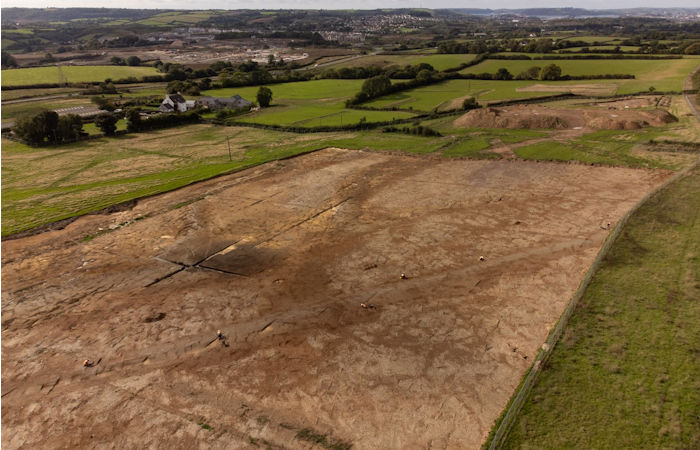Jan Bartek - AncientPages.com - Archaeologists excavating on the site of a new town in Devon, UK, have unearthed an ancient road, Bronze Age homes, Roman farmsteads, and intriguing ancient artifacts. The archaeological find sheds new light on how people once lived, worked, and traveled in the area.
Archaeological investigators have found Ice Age, Roman and Bronze Age remains. Credit: AC Archaeology
The latest finds are "fascinating," according to Orion Heritage’s Rob Bourn.
Ancient pottery was found at the site. Credit: AC Archaeology
"We are thrilled to work on these important historic investigations, and hope the findings at Sherford help to encourage everyone to take an interest in local history and secrets under the soil."
Experts from Orion Heritage and AC Archaeology believe it provides evidence of the site having been a "crucial link" for trade and connecting "ancient communities", BBC reports.
"The discovery of a probable Roman road – which extends across the length of the area towards Plympton – also showcases ancient construction methods, with its crushed slate surface and adjacent drainage points still visible and well-preserved," Plymouth Live reports.
"The probable Roman road extends across the length of the area, towards Plympton, with other discoveries providing evidence that the area was likely once a thriving place of activity from the Bronze Age.
It's thought the site was also home to farmsteads during the Roman period. Credit: AC Archaeology
Other crucial finds include the remains of roundhouse postholes, and pottery dating back to 1500 BC - which still shows unique decorations, likely made from a cord being pressed into wet clay before being fired.
See also: More Archaeology News
Uncovering evidence of ancient community family life, the discoveries come as part of key infrastructure work to create the Sherford Business Park. All findings that can be removed from the area will be carefully analysed and preserved by a team of archaeological experts," the Sherwood team wrote on Twitter.
The Sherford Consortium said findings would, where possible, be removed, analyzed, and preserved. The finds will be put on public display.
Written by Jan Bartek - AncientPages.com Staff Writer
